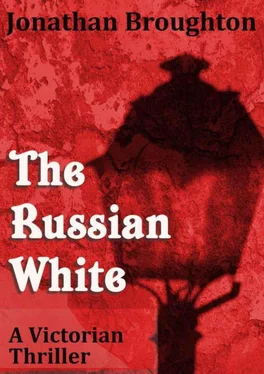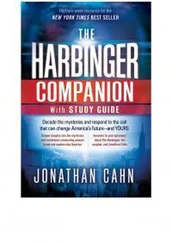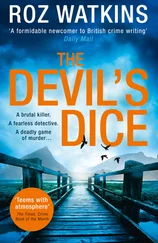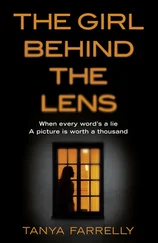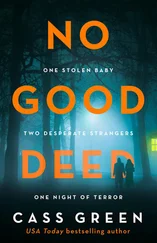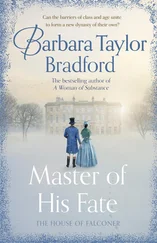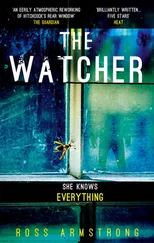The Chief grunted. “In times of war even peasants are trained as fighters.” He paced before the fire, and marshalled his thoughts into some sort of coherent order. “We have no idea of their preparations. Russia is impenetrable, a darkness that we cannot see into.”
“It’s a very big country.” Buffrey leant back with care.
“Then all the more reason to safeguard what we do know,” suggested Hood.
The Chief dismissed the suggestion with a flick of his hand. “Our concerns with the Russian White are obsolete at a time like this.”
“But not perhaps to the Russian Orthodox Church,” persisted Hood. “They will welcome this upheaval, don’t you think?”
The Chief stared at the carpet. “Its presence will be forgotten in wartime.”
“On the contrary.” Hood jabbed a finger to emphasise his point. “One of the foundation stones of Russia’s religious faith? It will unify the nation.”
The carpet’s bright swirling pattern made him dizzy. “The Orthodox Church no longer has the power to take state control of Russia.”
“But with the Russian White in their hands they can challenge that power,” Hood argued. “That’s why Peter the Great gave it to William of Orange in the first place. A gift he called it, but in truth he was giving away the right of the Church to rule jointly with the Tsar, a right that had been established at the very founding of the Russian nation. William of Orange knew that. That’s why he set up The Brotherhood, to keep the diamond secret in case the Russians came back looking for it. It was a bargaining tool that he didn’t want to lose. And sure enough, the loss of the diamond weakened the Church’s hold, weakened their hold on Russia. Now the Tsar rules supreme because the Church does not have the Russian White.”
The Chief sighed. He didn’t feel fit to argue. “Its return to Russia would be for monetary gain only, nothing more.”
“The Russians entering the country are Church spies, not mercenaries.”
Hood’s emphatic statement surprised him. “How do you know that?”
Hood glanced at William. “Just a guess Chief.”
“Have you caught any recently?” Buffrey sat very still in his chair.
“No.” He paced backwards and forwards. “And they’ll run to ground.”
“Done a pretty good job of that already,” Buffrey snorted.
“They won’t operate now that we are at war.”
“I wouldn’t count on that.”
“Oh for goodness sakes Buffrey,” snapped Hood. “Anyone speaking with a Russian accent will be lynched. They won’t dare show themselves.”
“They might disguise their voices.” The leather squeaked as Buffrey shuffled sideways.
“Anyway, aren’t we forgetting something gentlemen?” Hood glared at The Chief, his eyes narrow and hard. “Discussions concerning the Russian White should not be entered into until the formalities have been observed. Chief?”
He shook his head, dismissing the subject. “I know. But in the current situation…”
“The diamond’s care should be given even greater consideration.”
“It is irrelevant Hood.”
“The correct procedures must be respected. It’s in the Constitution.”
His mounting anger burned like the fire. “We are at war. I don’t care about protocol.”
Hood leapt from his chair and pointed at William. “William, back me up on this.”
“You’re being very quiet tonight William.” Buffrey’s chair squeaked long and loud as he heaved himself out of it. “Oh—er by the way, sorry to hear about your sister. Saw it in The Times, very sad.”
William bowed his head to acknowledge his concern. “Thank you.”
Buffrey’s face creased into a look of mock worry. “Is she getting better?”
“I don’t know Buffrey. She escaped from Parklands and I’ve absolutely no idea where she’s gone.”
“Goodness.” Buffrey glanced at Hood in shocked surprise. “That’s the second time she’s done that. She must be mad.”
“When did this happen?” asked Hood.
“Two days ago.”
“So she might have gone—anywhere?”
“Well, yes. I should imagine so.”
Hood’s anxiety quickened. “Has she taken—the diamond William? Is it safe?”
William raised his hand to silence their fears. “It is quite safe.”
The Chief frowned. “Why would your sister take the diamond William?” He didn’t understand Hood’s concern.
William reached into his jacket pocket and pulled out a black velvet bag secured by a gold drawstring. He untied the string and tipped the bag upside down. The Russian White dropped into his lap. He picked it up and handed it to The Chief.
“You’ve brought it back to London William, is that wise?” He took the diamond; its weight always surprised him, and he placed it on the mantelpiece. Its cut surface reflected the lamplight with flashes of white light, and its heart burned with a deep golden glow. “Why have you brought it back? And why is Hood worried about your sister?”
William tucked the velvet bag into his pocket, and leant back in his chair. “Chief, I have something to tell you.”
Terrington shielded his eyes against the sun. Six rooks, black shapes against the blue sky, spiralled in slow lazy circles towards a point on the far side of the hill, where, he guessed, they had spotted the two fugitives. The rooks circled, waiting to scavenge an easy meal.
He studied the human tracks at his feet; two pairs. The larger, a man’s, judging by the heavy imprint, led up the slope to the summit of the hill. Beside the tracks lay a gorse branch, its twigs bent and broken, the dry soil around it scratched and turned. They had used this to wipe away their marks. But, he guessed, in their hurry to be gone, their attempt at concealment had been rushed.
He could only guess at the path Isobel would take, but now he had a lead, and his pursuit would be swift. He marked the tracks with the branch, pointing the tapered end towards the summit. Then he sprinted back into the forest to fetch his horse.
Isobel’s tracks had been easy to trail the day before. He had followed her on foot. When night fell, he planned to creep up on her and take her by surprise. But then he lost her in a confused pattern of hoof prints and boot marks halfway through the forest, and when he picked them up again, they took him back towards Parklands.
He found her horse grazing the grass at the edge of the forest, but as he approached, she cantered away. Of Isobel there was no sign. Confused, he retraced his path, but the fading light made tracking impossible. She had tricked him, this time, but he would find her, and when he did, she would feel the pain and pleasure of his anger.
He darted through the trees, and the downward slope increased his speed. So—Isobel had an accomplice. Who was he? Had he helped her escape? Why was nobody looking for them? No one had come searching from Parklands.
He leapt over a fallen branch into the clearing where the heap of black and white ashes hid the charred remains of Mister Ridley’s bones, and where he had left his horse tethered to a tree.
Disbelief turned to anger. The horse was gone. Its bridle dangled from the branch, the reins torn and frayed, as if they had been snapped. Poachers?
Then he saw the blood, the dark red smear drying on the tree bark, and the glistening spots spattering the grass at his feet. His horse’s bloody remains lay scattered across the clearing covered in clouds of black flies.
He drew his knife, and spun first one way, then the other, studying the shadows, watching for movement between the trees. Last night he heard a wolf howl, and had hidden amongst the roots of a large tree, waiting and watching until dawn. Wolves didn’t roam the wild anymore. He thought it might be a pet that escaped, and made its lair in the forest. His tethered horse would be easy prey.
Читать дальше
